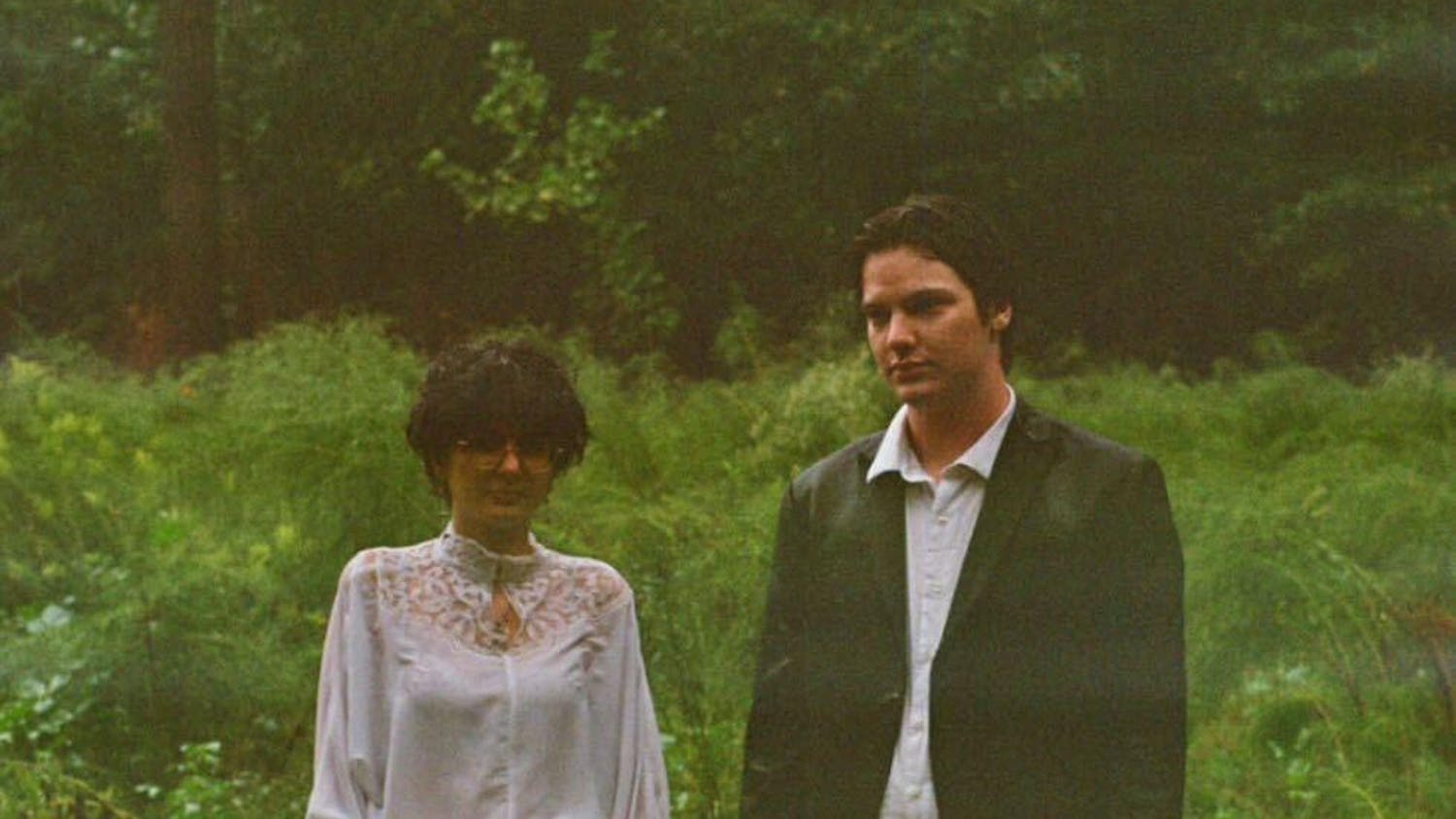
“Poetry is language at its most distilled and most powerful,” former U.S. Poet Laureate Rita Dove said. As a former poet laureate, Dove stands amongst the most talented poets of America who have served in that position. Each poet laureate leaves a legacy of creativity and innovation and this past Thursday, Emory welcomed former U.S. Poet Laureate Charles Wright.
On Oct. 1, scores of people gathered in the Emerson Concert Hall to listen to Wright give a reading. A poet with over 20 books of poetry, Wright read several of his poems. The poems were both from past books and his most recently published work, Caribou (2014).
Before the night began, Rosemary Magee, director of Emory’s newly named Stuart A. Rose Manuscript, Archives and Rare Book Library (MARBL), announced to the audience that the event marked the 10th anniversary of the Raymond Danowski Poetry Library Reading Series.
Wright’s reading is the first of this year’s reading series, which began in 2005 with Creative Writing Professor and Curator of MARBL and the Raymond Danowski Poetry Library, Kevin Young, as the first reader. Each year, the reading series invites some of the best poets from across the globe to read their works. The series is sponsored by the Creative Writing Program at Emory, MARBL and Emory Libraries.
Head of the Poetry and Literature Center at the Library of Congress Robert Casper followed Magee, sharing part of the Library of Congress’ mission statement “to further the progress of knowledge and creativity.”
A representative of the Library of Congress, which appoints the poet laureate of the U.S., Casper praised Emory for its efforts in working toward this purpose. Casper then welcomed Young to the stage.
Young said a few words about Wright and his creative work before introducing him.
“Wright means to guide us in our living … to help the soul’s journey,” Young said. He then continued to talk about Wright’s poetry, calling it “physical and metaphysical,” as the poems provide a sort of instructional insight into human experience.
“His poetry gives us a reason not just to live, but to believe,” Young said.
Wright then proceeded to the stage amidst applause, which softened to a respectful silence when the Pulitzer Prize and National Book Award winner began to speak. He began with his poem “Ars Poetica,” Latin for “Art of Poetry.” According to Wright, the poem was written in Laguna Beach, California in a “windowless room carved in the back of a garage.”
Before almost every poem, Wright offered some information about the poem’s content and the context in which he wrote the poem.
At one point in the night, Wright explained the context of two of his more popular poems titled “Body and Soul” and “Body and Soul 2.” It was inspired by Coleman Hawkins, a famous saxophone player who performed and recorded the first free-formed jazz record in 1939 including a song of the same name (“Body and Soul”).
The poems illustrate the inherent human longing for immortality while expressing the musicality of language. These two themes echo throughout Wright’s other works as well.
“These poems are about language [and] the music I can get out of language,” Wright said of the thematic elements in his work. “I talk about language in all my poems.”
He also seemed to find humor in his poems. After reading his poem, “Miles Davis and Elizabeth Bishop Fake the Break,” he even paused and laughed in spite of his award-winning work.
“I don’t know what any of my poems mean,” he admitted lightheartedly. “They come to me in a trance, and I write them down, and then I can’t read ‘em.”
In accordance with the musical nature of his poetry, Wright has a poem titled “Lullaby,” found in Caribou. He writes: “I’ve said what I had to say / As melodiously as it was given to me.”
Fittingly chosen as the last poem of the night, “Lullaby” speaks of a “time to go” and a “time to say goodnight.” Time is another nebulous human concept that he tackles creatively in many of his poems. Wright seems to accept this as his job; he makes something meaningful from what seemingly is not meaningful; he tries to make sense of the parts of life that most people do not dare to contemplate.
In his introduction of Wright, Young expressed a similar sentiment.
“What’s amazing about Wright is not just the face beneath the unmasking he’s done over the decades,” Young said. “But the way he faces things — life, death, the desire to outlast and the desire to belong.”
After Wright finished his reading, he stayed to sign copies of his books. People gathered outside the concert hall, purchasing books and waiting in line to spend a few minutes with one of the most honored poets of our time. In addition to the Pulitzer Prize and National Book Award, Wright is also a winner of the National Book Critics Circle Award and the 2008 Rebekah Johnson Bobbitt National Prize for Poetry from the Library of Congress.
“I really enjoyed his sense of humor and how he is able to add a little something into his poetry beyond just the reading,” College freshman Ilana Ander said of the reading.
She was also pleased that Emory brings poets to a university that feels so centered around science.
Through the Raymond Danowski Reading Series, aspiring writers and lovers of literature can learn about and enjoy the works of great artistic minds. Thursday night was a testament to Emory’s dedication to the promotion of the arts, as new and old fans alike walked away with a newfound appreciation not only for Wright’s work but for the creative arts.
Former U.S. Poet Laureate Charles Wright Gives Reading
Former U.S. Poet Laureate Charles Wright gives a free reading to the public at Emerson Hall. / Courtesy of Kay Hinton





